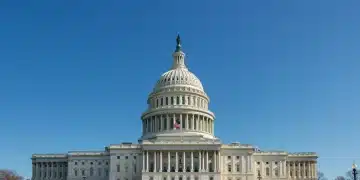Migration policy UK: What You Need to Know Now

Anúncios
The migration policy UK regulates the entry, stay, and exit of migrants, focusing on skilled labor, family reunification, and adapting to global changes to support a diverse and thriving economy.
Migration policy UK is a hot topic that influences countless lives. Have you considered how it might impact your family or career? In this article, we delve into the essential aspects of these policies and what they mean for you.
Anúncios
Understanding the current migration policy UK
Understanding the current migration policy UK is vital for anyone interested in living or working in the UK. These policies shape the experiences of many, affecting everything from employment opportunities to family reunification. With recent changes and updates, it’s essential to stay informed about how these policies are evolving.
Major Components of the Migration Policy
The UK’s migration policy includes several critical components that determine who can enter, stay, or work in the country. It is crucial to grasp these elements, as they are pivotal in guiding applicants on the correct path.
Anúncios
- Visa Categories: Various visas are available depending on the purpose—work, study, or family reunion.
- Points-Based System: This system assesses applicants based on skills, language proficiency, and education.
- Permanent Residency: Understanding the criteria for settling permanently is key for long-term residents.
- In-country Regulations: Policies also address those already in the UK, including extensions or changes in status.
The impact of immigration laws extends beyond mere regulations; they also influence the economy and labor market. Changes in the job market can affect immigration rates, pushing for more skilled workers in certain sectors. For example, with a focus on attracting talent, the UK government has streamlined processes for those with in-demand skills.
Additionally, community integration is fostered through policies that emphasize social responsibility. The government seeks ways to help newcomers settle in, benefit from local services, and contribute to their communities. This integration process increases the overall success of migration initiatives.
Future Outlook
Looking ahead, it’s essential to recognize that the migration policy UK will likely continue to evolve. Future changes may reflect global socio-political dynamics, breaching barriers for skilled migrants or re-examining requirements on humanitarian grounds. Keeping abreast of these developments can provide individuals and families with necessary insights to prepare for their future.
Key changes in visa regulations

Key changes in visa regulations have significantly reshaped the landscape for individuals seeking to move to the UK. Understanding these adjustments is critical for anyone considering a move or planning long-term stays.
New Visa Categories
Recent updates have introduced several new visa categories designed to simplify the process for specific groups. These changes aim to attract skilled workers, students, and entrepreneurs. Each category has its own eligibility criteria and benefits, making it easier for applicants.
- Graduate Visa: This allows international students to stay in the UK for up to two years post-graduation to work.
- Skilled Worker Visa: Tailored for individuals with a job offer in the UK, this visa emphasizes skilled professions.
- Innovator Visa: Designed for entrepreneurs looking to start a business in the UK with significant investment potential.
- Health and Care Visa: Aimed at healthcare professionals, it offers a pathway for those wishing to work in the NHS.
Moreover, the recent updates to eligibility requirements mean that applicants now face more straightforward guidelines. For many, this is a chance to re-evaluate their options and consider how these changes may impact their plans.
Another significant shift is the implementation of the points-based immigration system. This system scores applicants based on factors such as job offers, salary levels, and language skills. Meeting the required points threshold is essential for most visa applications. This new methodology aims to ensure that the UK attracts the best talent from around the world.
Impact on Application Processes
The application process has also been streamlined, making it more user-friendly. Improved online systems and resources have been introduced to assist applicants in navigating the requirements. As a result, the need for extensive paperwork has decreased, ensuring quicker processing times.
Understanding these key changes in visa regulations can significantly influence an individual’s or family’s decision to relocate. Staying informed about updates can help in making more strategic choices when applying for a visa.
Impact of the migration policy on businesses
The impact of the migration policy on businesses in the UK is profound and wide-ranging. These policies dictate not only the movement of labor but also how companies operate in a global market. Understanding these effects is essential for any business looking to thrive.
Changes in Talent Acquisition
One of the most significant impacts is on talent acquisition. With evolving regulations, businesses face new challenges in hiring skilled workers from abroad. Companies must adapt their recruitment strategies to comply with the latest visa requirements. For instance, firms in tech or healthcare sectors may experience more difficulty finding qualified candidates as immigration rules tighten.
- Increased Recruiting Costs: Organizations may need to invest more in recruitment efforts, such as offering competitive salaries to attract local talent.
- Training and Development: Businesses might focus on in-house training for existing employees to bridge skill gaps.
- Shift to Remote Work: Some companies may choose to hire remote workers to bypass restrictions on immigration.
- Global Recruitment: Businesses can alter their approach to identify talent in countries with less stringent policies.
Furthermore, the adaptation of the migration policy affects employees’ perceptions of job security. Workers may feel uncertain about their status, leading to lower morale. Companies that foster a supportive environment can help alleviate these concerns, enabling smoother transitions for migrant workers.
Effects on Innovation and Growth
In addition to hiring challenges, the migration policy can influence innovation. Diverse workforces bring varied perspectives essential for creativity and problem-solving. Changes in immigration regulations may reduce the influx of talented individuals who drive innovation. Organizations should consider strategies to promote a culture of inclusion within their teams.
Moreover, businesses may also experience shifts in market dynamics. As migration policies change, the availability of certain products or services may fluctuate, affecting supply chains. Companies must stay informed on these policies to anticipate market trends and adapt accordingly.
In summary, the impact of migration policy on businesses is multi-faceted. Organizations that respond proactively to these changes will better position themselves for success in an increasingly competitive landscape.
How the policy affects families and individuals

How the migration policy affects families and individuals is an important consideration for anyone planning to move to the UK. Changes in the policy can significantly influence family dynamics, living arrangements, and personal opportunities.
Family Reunification
A major aspect of the migration policy is its rules around family reunification. These guidelines determine how family members can join those who have already settled in the UK. Recent changes have made it easier for certain family members to apply for visas, improving overall family stability.
- Spousal Visas: A spouse can apply to join a partner in the UK, provided they meet specific financial requirements.
- Dependent Children: Children under a certain age can often join their parents without excessive barriers, ensuring families stay together.
- Financial Requirements: Sponsors must demonstrate an ability to support family members without relying on public funds, which can be challenging for some.
- Time Limits on Applications: Certain visas may have specific time frames for family members to apply, adding urgency for families planning their future.
Beyond reunification, the migration policy also impacts individuals’ ability to establish their lives in the UK. For many, studying or working in the country is vital for long-term success. Changes in visa regulations can create both opportunities and barriers for personal growth.
Education and Employment Opportunities
Foreign students and professionals often seek UK residence to access its world-renowned education system and vibrant job market. However, new policies may limit the number of work opportunities available after completing studies. Students must become aware of how to transition from a study visa to a work visa efficiently.
Furthermore, individuals may face uncertainties regarding their status and future opportunities. This anxiety can affect mental health and overall well-being. Feeling secure in their residency can lead to better employment and social integration outcomes. Creating supportive environments for migrant families is crucial for helping them navigate these changes.
As policies evolve, it is vital for families and individuals to stay informed about the implications for their lives. Understanding how current regulations can create challenges or opportunities can help them make informed decisions.
Future trends in migration policy UK
Future trends in migration policy UK promise to shape the landscape for both migrants and the nation itself. As the world changes, so too does the UK’s approach to immigration, reflecting broader global challenges.
Increased Focus on Skills
One notable trend is the increasing emphasis on the skills of prospective migrants. The UK government may prioritize applicants with specific talents that are in high demand. This can lead to a more robust workforce capable of addressing the challenges in various sectors.
- Sector-Specific Recruitment: Policies may encourage migration in fields like technology, engineering, and healthcare, where there are skills shortages.
- Recognition of International Qualifications: Efforts to streamline the recognition of foreign qualifications could attract more skilled migrants.
- Flexible Visa Options: More dynamic visa options might be created to attract temporary workers for seasonal jobs.
- Regional Migration Policies: Different regions in the UK may develop unique policies to address local labor market needs.
Another trend is the potential for evolving family reunion policies. The government may adapt these rules to facilitate family connections as public sentiment shifts towards supporting families in migration matters.
Technological Advancements
The use of technology is also expected to revolutionize the migration process. Improved digital systems for applications can streamline the journey for migrants, making it easier to navigate the requirements.
Artificial intelligence might play a role in assessing applications, helping to identify potential candidates faster and more accurately. This evolution can lead to better outcomes for individuals and families looking to migrate.
Lastly, international cooperation may become increasingly important. The UK might engage more in global partnerships to handle migration challenges, sharing best practices and addressing issues collectively. As global crises unfold, a cooperative approach can better manage migration flows. Understanding these future trends in migration policy UK is essential for those considering moving to the UK and for businesses seeking to adapt to new realities.
FAQ – Frequently Asked Questions about Migration Policy in the UK
What is the main focus of the UK’s migration policy?
The main focus of the UK’s migration policy is to regulate the entry, stay, and exit of migrants, emphasizing skills and family reunification.
How does the migration policy affect family reunification?
The policy allows certain family members to join their relatives in the UK, with specific visa options designed to facilitate this process.
What are the future trends expected in migration policy?
Future trends may include an increased focus on skilled workers, technological advancements in application processing, and regional policies tailored to local needs.
How can individuals stay informed about migration policy changes?
Individuals can stay informed by following official government announcements, consulting immigration lawyers, and checking website updates regularly.





